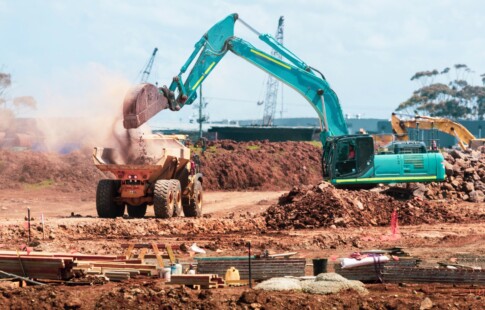
6 Pros and Cons of Tar Sands Oil
We are reader-supported. When you buy through links on our site, we may earn affiliate commission.
Tar sands are an expansive and abundant oil resource on the planet despite most being in several locations. They are controversial because the climate crisis cannot heal if humans continue relying on fossil fuels. Apart from financial gain, there are other reasons people advocate for tar sands. The arguments against them are just as meaningful. Here is an exploration of the most notable tar sands pros and cons.
What Are Tar Sands?
Tar sands go by several names, including tar sand oils or bituminous sands, because they are petroleum deposits mixed with sand. Despite the misleading name, they do not contain human-made tar. The sands merely have a tar-like appearance.
The composition usually includes more than bitumen — a thick oil created by bacterial degradation of lighter oil — and sand, with clay and water. Several areas worldwide have more significant tar sands than others, such as Canada, Russia, and Venezuela. Tar sands are unconventional oil sources, with more than conventional reserves worldwide.
Oil companies go to these deposits and extract their resources using advanced tech. Traditional crude oil is usually the highlight of most environmentalist energy conversations, but tar sands might have a greater impact on the planet. When reviewing life-cycle analyses, the Carnegie Endowment’s Oil-Climate Index reported 31% greater emissions from tar sands than North American crude oil sources.
What Are the Pros?
It is understandable why anyone would dismiss any potential pros of tar sands oil because it is a fossil fuel. The planet must phase these out to be genuinely sustainable. However, it is almost equally important to understand the scope of the argument so advocates for the earth can create answers to these debates for systemic change. These are the top reasons people may favor mining and using tar sands.
1. There Is An Abundance of Resources that Creates Jobs
The industry employs hundreds of thousands of people in places where tar sands are plentiful. In Alberta, Canada, there were 138,000 workers relying on tar sands for employment in 2022. Because tar sands are saturated in Canada, these people can continue working with job security for an extended time, reducing financial and emotional stress.
Some are not content enough with making a paycheck and are moving to renewable energy sources for more ethical work. Oil prices are fluctuating too much. Even though tar sands are in high enough quantities, job security could become less sturdy if citizens fear they cannot afford oil-based power.
2. There Are More Options for Energy Security
There are more tar sands oil reserves than conventional oil in the world. In times of energy insecurity, especially with an increase in critical infrastructure cybersecurity threats and natural disasters, any medium for energy is a positive one in the fight for more robust energy security. The lights must stay on, and businesses like hospitals need connections to save lives. Whether or not tar sands are the source of that power is inconsequential when it comes to saving lives.
However, energy security feels less than essential when nations like Venezuela have been in political turmoil for the better part of a decade because of oil controversies.
3. Mining Sites Are Capable of Some Rehabilitation
Activities like fracking and mountaintop removal damage environments so much they are beyond repair. Tar sand extractors advocate that the lands they use to mine oil can go back to their natural state after they have sapped the ground.
An Alberta tar sands project removed native materials from the job site to hold them in a haven until they finished harvesting. Some companies claim they spent over $29 million in land restoration efforts, but this was back in 2007.
Some clear-cutting did occur, and those original trees will not see replanting. However, topsoil and vegetation may visit their homes once again, and with the help of replanting native trees, the habitat might heal. However, this does not excuse the fact that the habitat displaced numerous wildlife species because of fossil fuel companies’ benefit.
What Are the Cons?
Let’s look into the more intricate issues surrounding tar sands apart from the apparent anti-fossil fuel argument.
4. Processing Tar Sands Is Destructive
All mining harms the planet, but the damage doesn’t stop even after mining or underground steam injections to access the tar sands. Bitumen is like syrup. It is incredibly thick and heavy, meaning companies wanting to surface mine tar sand could not put the byproduct through pipelines like conventional crude.
So, they have to get creative, and that is where extremely energy- and labor-intensive environmental degradation happens. It takes two tons of tar sands to produce a single barrel of synthetic crude oil. That is a carbon-intensive procedure. The only way this happens is by using countless planet-damaging resources to process and thin it out, usually with liquid natural gas.
5. Tar Sands Harm Indigenous Populations
Indigenous communities in each tar sands-heavy country are at risk because of mining activities. Russia’s Indigenous communities suffer from the pollution from fossil fuel activities so much that they have difficulty breathing. The pollution from mining activities harms the wildlife they use as their primary food source, such as reindeer and fish.
In Canada, processing plants for tar sands sting the eyes of local Indigenous people. Waterways reroute, forests that families used for foraging and hunting disappear, and communities are displaced because of pollutants. Federal governments already underserve these communities in many places worldwide, and tar sands do not help.
6. Focusing on Potential Tar Sand Pros Hinders Real Progress
A reliance on tar sands delays the inevitable. Humanity should have already eliminated fossil fuel use to help the planet’s restoration. Similar pseudo-fossil fuel advocacy efforts like carbon capture for natural gas plants misconstrue the damage they cause.
Sure — they can pay to restore land and produce “zero-emissions” power that employs countless worldwide. But, it doesn’t solve the issue that will arise in a generation or two when these resources are depleted, and the planet’s natural state is more tarnished than ever.
A Closer Look at Tar Sands Pros and Cons
Energy and job security are ideal, but do the cons outweigh the pros in the tar sands industry? Yes. Environmental allyship involves eliminating fossil fuels for good, especially when saving communities of humans and wildlife. Jobs in tar sands can convert to greener fuel sources, and energy security bolsters with research, development, legislation, and implementation. Proper planning will guide the planet from the tar sands mines into more productive futures.
Share on
Like what you read? Join other Environment.co readers!
Get the latest updates on our planet by subscribing to the Environment.co newsletter!
About the author
Steve Russell
Steve is the Managing Editor of Environment.co and regularly contributes articles related to wildlife, biodiversity, and recycling. His passions include wildlife photography and bird watching.





